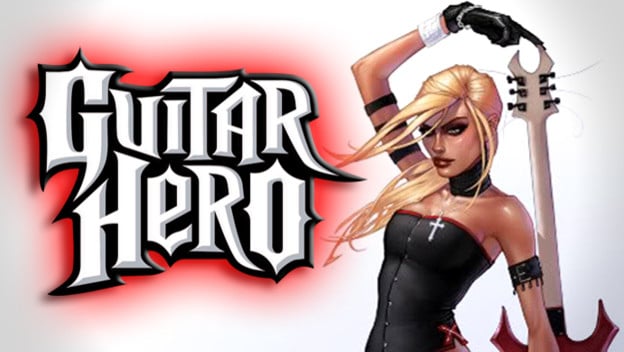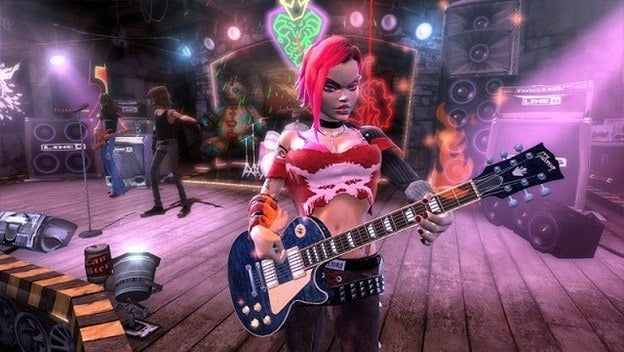Guitar Hero pretty much began and then killed off the plastic instrument craze. Though a lot of fun, instrument-based rhythm games are expensive, and their initial success in the mid-2000s was tarnished by too many sequels and add-ons being released too quickly. After a break for both Guitar Hero and its major competitor, Rock Band , both series were revived in 2015 to lukewarm sales. Guitar Hero tried something new with Guitar Hero Live , making itself more like a play-along music video station than a traditional “career” band game. I thought it was a pretty cool concept, but it wasn’t successful enough for publisher Activision. Guitar Hero Live’s developer, FreeStyleGames, has now been bought by Ubisoft. Activision has promised to keep supporting Live ‘s services, but past that, I think it’s time for Guitar Hero to exit stage left and leave Harmonix’s Rock Band as the only major player in the fake band genre.
Wait, aren’t monopolies bad? It’s true that a lack of competition can lead to stagnation and to price hikes that are bad for consumers. But in this case, it just doesn’t seem like there’s enough of a player base left to fully support two competing rock band simulators. I’m not too worried about price hikes, either. Plastic instruments are a novelty item, and with the main craze over, anybody releasing a game that uses them is going to have to keep prices low to induce consumers to buy in the first place. Having only one band brand would also create one big advantage for consumers: no more exclusive contracts that mean one of your favorite bands is with Guitar Hero , while the other is with Rock Band .
So why should Rock Band inherit the genre instead of Guitar Hero ? For starters, Harmonix is the founding developer of the genre, having created Guitar Hero in the first place before breaking away from Activision to make Rock Band . Harmonix and its current publisher, peripheral maker MadCatz, are more strictly focused on this genre, as well. Activision has plenty of other irons in the fire, but rhythm games are Harmonix’s bread and butter. Frankly, Harmonix and MadCatz represent a far more stable future for band games.
Also, Rock Band is more flexible than Rock Band , with support for multiple instruments and stronger support for vocals. That makes it better for parties, because not everybody likes playing fake guitar. I’m personally a drums and vocals gal. For me, the best part of Rock Band is that it’s a fairly accurate drumset simulator, letting me pretend that those drum lessons I took in college actually led to something. Heck, you can even use Rock Band for plain old karaoke if you want. Guitar Hero might be best for guitar specialists, but for the larger market that just wants to noodle around with friends, Rock Band is the way to go.

Although Activision is currently still supporting Guitar Hero Live , I doubt that will last forever. The game didn’t sell to expectations to start with, and I imagine there’s only a small dedicated core of players left using the service. Once Live has run its course, I think it’s time for Guitar Hero to riff off into our memories, leaving Rock Band as king of the plastic instrument hill. With only Harmonix left making this kind of band-based rhythm game, the audience can consolidate, all interested bands can move their songs over to a single platform (unless Activision decides to be a jerk about contracts), and hopefully we can see the genre continue to rock out nerdy get-togethers for years to come.
